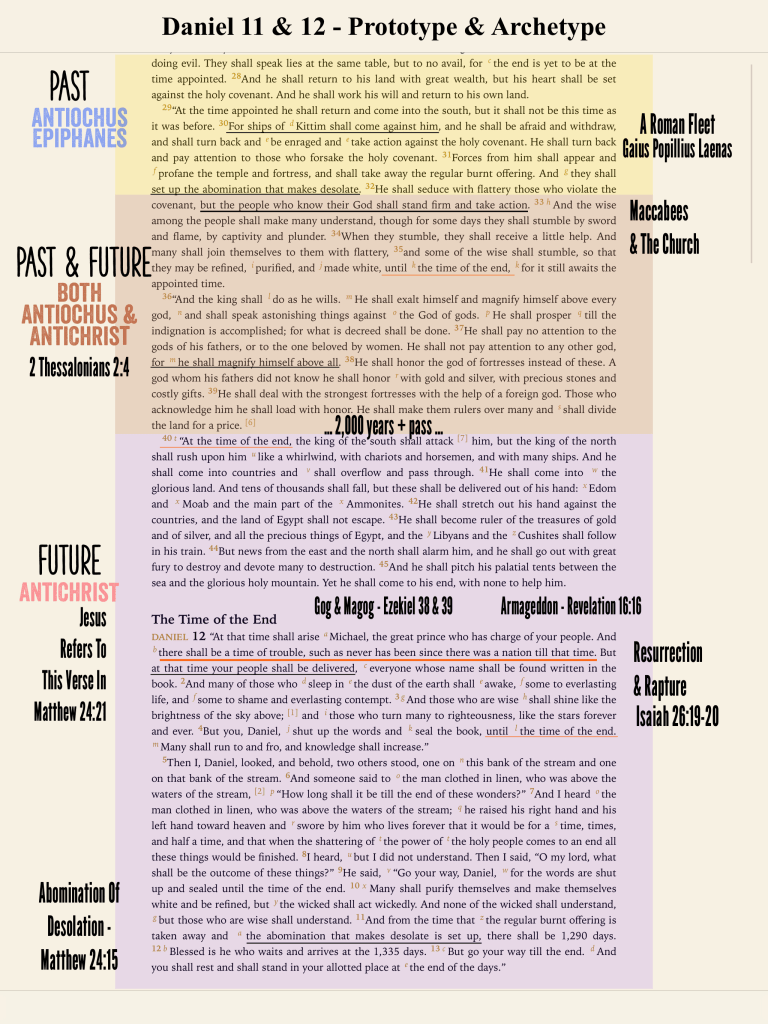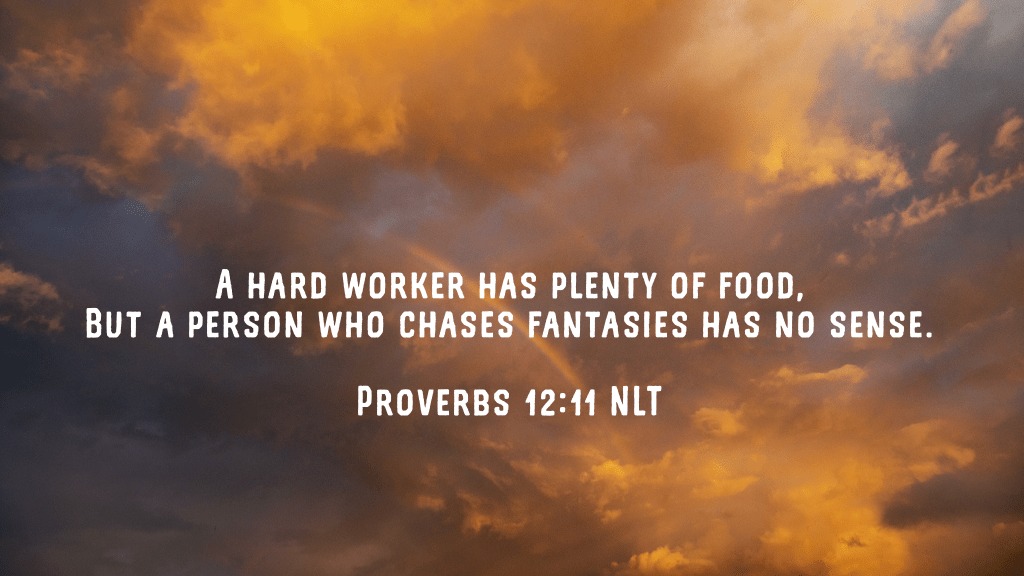Sunday, August 22, 2021

Theological Thoughts
Sunday, August 22, 2021


The Château Apocalypto and its Four Grand Pavilions

Welcome to the Château Apocalypto, where time and space stand as no impediment whatsoever to your reliable and knowledgable extraterrestrial guide.
At the Château Apocalypto, your extraterrestrial guide will take you on a breathtaking tour of not just one, not just two, not three, but all four of our Grand Pavilions, each pavilion in its proper sevenfold sequence, one pavilion after the other.
In the first Grand Pavilion of the Château Apocalypto our reliable and knowledgable guide will spirit you and your fellow travelers back in time nineteen centuries, where you go from city to city a total of seven times, in a diagnostic tour of the Seven Luminary Churches of Græco-Roman Asia. During your tour, you will be asked this most challenging and introspective question, “Of these seven luminary churches, which is most like me and my own community?”
In the second Grand Pavilion of the Château Apocalypto our guide will deliver you and yours straight up to highest Heaven — narratively, that is — where you will witness the indescribable beauty of the Throne of the Almighty and there behold a most worthy sacrificial Lamb, a Lamb who progressively breaks open the shocking and somewhat disturbing seven seals to an entirely important, yea, wholly determinative document — a document that unfurls before you in the telling form of an Ancient Scroll. Reassuringly for you, the sacrificial Lamb asserts his hard-won authority over the seven somewhat disturbing seals of the scroll and its exacting contents.

In the third Grand Pavilion of the Château Apocalypto our guide will direct you and the rest our guests to gaze downward from your heavenly vantage point upon the earth below. You will be given Heaven’s own perspective on seven of the most significant events in all of human history, each of which is heralded with a Conqueror’s trumpet blast. These seven chronological events unfold during the Church’s wilderness sojourn, beginning shortly after the ascension of the Messiah and ending with his second advent or Parousia. This advent coincides with the resurrection and immediate ascension of the Church herself, an event otherwise known as the Rapture. As it so happens, you are currently living during the midst of the sixth, penultimate trumpet event — an exciting time indeed to follow the Lamb and participate in His conquests!
Between the third and the fourth pavilions, your guide will prepare you for a difficult and troublesome period. He will personally escort you and your fellow travelers through that difficult and dark season ahead. Your guide will give you an up-close-and-personal preview of the sinister characters and the intense hardships that the followers of the Lamb must endure during the period immediately preceding and immediately following the seventh and final trumpet blast. Although this is an extremely difficult transitional period, it is necessary to endure it, if you desire to make it safely to the Coming Kingdom. And please believe us, you definitely do want to have a place in that Kingdom! Its rewards far outweigh any temporary hardship someone may have to endure.

In the fourth and final Grand Pavilion of the Château Apocalypto, you and your fellow guests will again watch from the safety of Heaven as the deceptive Beast from the Abyss and the pitiful Inhabitants of the Earth are subjected sequentially to the seven bowls of the wrath of God. This is every bit as terrifying a spectacle as it sounds. And yet it is God’s way of demonstrating his righteousness to the Inhabitants of the Earth and of vindicating his faithful followers.
However, the fourth and final Grand Pavilion is not our travelers’ final destination in the Château Apocalypto. Beyond the final Grand Pavilion, the Kingdom of God and a great Eternal City await you, where the Lamb will rule with his saints, and the Almighty will forever reside with those who have faithfully followed God.

One of the great potential advantages of blogging is candor. To borrow a phrase from a friend and fellow blogger, an internet writer can “hide behind a keyboard.” For anyone who wants to get his or her message out, the prospect of relative anonymity is quite alluring, especially for anyone who might be socially challenged or less-than-photogenic. Indeed, and to borrow yet another phrase, someone “with a face made for radio” might gravitate towards a blog as a preferred communication platform. Of course, I do not mean for any of this initial commentary to reflect in any way upon yours truly, since I am a social savant and forever fabulously photogenic. Wait… who is that I hear snickering in the background?
Anyway — and however — the reason I do open with a somewhat narcissistic paragraph is because I do hope to shield myself with this here (very sturdy) laptop and with the impervious, impenetrable security of cyberspace. I might need both means of defense, though, because in this blog-cast I fully intend to insult a tiny, insignificant percentage of my readers or listeners.
No, I do not mean you — of course not. I mean someone else who might read or listen to this. But if you lean in, I’ll let you know how I plan to insult that someone else. At some point, I am going to subtly suggest that someone else (other than you) might be just a bit lazy.
Is that not a good idea? Perhaps it is not the best way to make friends and influence people. Perhaps it is why I am an anonymous blogger and not an in-demand motivational speaker. Maybe, just maybe. But if the shoe fits… find someone else — anyone else — who wears your size, and offer said specified shoe to that special someone.
But exactly how is that someone else lazy? I cannot say someone is lazy unless I pinpoint precisely how they are lazy. I mean, who isn’t guilty of being lazy here or there, now and then?
That really, though, is my point: If we’re honest with ourselves, most of us cannot escape the charge of laziness. If you think about it, laziness is really just selective negligence. If someone says you’re lazy, what they fundamentally mean is that you’re somehow culpably negligent. I choose my negligence, everyday. And unless you’re superhuman, you likewise choose your negligence. Positively, it’s called prioritizing. Consciously or unconsciously, we all prioritize. Prioritizing inevitably means that some things get done, while other things do not. And what does not get done allows for the charge of laziness.
So perhaps the real question is: Since you must daily prioritize your time, exactly how are you going to be “lazy”? And some immediate corollary questions include: Why did you prioritize this activity and not that? On what basis did you prioritize? Can you articulate how you prioritize? Are you prepared to take responsibility for what you neglected to do?
Ultimately, we are responsible for what we choose to do and not to do with the time we have. If you are anything like me, you often feel like you are wide open to the charge of laziness. But it is more important by far that you are principled in your commitments, and on that basis can give a sound reason for how you prioritize your time. Sometimes less important stuff can wait.
Thursday, July 30th, 2020


Tomorrow begins at dusk, when mourning disturbs deep summer, annually, yet again.
I, unlike Joshua of Nun, will not slow the advance of darkness, nor halt the terrestrial spin.
Sunset, when through, brings wormwood and grief, for the good of today will fade into night.
History foretold, of great blessing or curses, their glory or chains, their triumph or fright.
As it sets, mourning must begin — not yet the dawn, but sad lamentation, grief, mourning.
Be not surprised to hear of choices made long ago, or the One who gave repeated warning.
Apostrophe here interrupts Doomsday — with no apparent reason and without explanation.
Acrostics appear in their scriptures, beginning Psalms of praise, prayer, and meditation.
Valuable insights await those who decipher the Doomsdays recurrent through generations.

Tuesday, July 28th, 2020

Why this and not that?
For those who would follow Thomas Jefferson’s lead and take an editorial scissors to the Bible, I have a simple and straightforward question: Why? What is your motivating rationale? Why are you prepared and willing to cross out or cut out this particular passage and not that?
In the curious case of Thomas Jefferson, presidential scissors-hands, his motivating rationale for cutting up the four gospels is easy enough to discern, in historical retrospect. Jefferson held a philosophical commitment to strict naturalism. Like his Deist contemporaries, Jefferson rejected the possibility of anything miraculous. Jefferson was convinced that God just does not do miracles. God does not intervene, but allows Nature to run its course, believed Jefferson. In his estimation, aside perhaps from the initial creation, miracles cannot occur and do not occur, ever. Therefore, any miracle account found in the Bible must be rejected as mere superstition and fable. But lest society fall into godless chaos, Jefferson wanted to retain the high moral ideals taught in the Bible, so he deemed it best to let biblical moral teaching stand. Jefferson’s Jesus was therefore a teacher of high morality, whose idealism led him to a tragic death.
Anyone who sets out to edit, omit, or ignore passages in the Bible necessarily has a motiving rationale. Some Bible editors will clearly (and sometimes even angrily) state why they are intent on omitting or rejecting a portion of scripture. Other Bible editors will be slow to show their hand, but will instead go about their work quietly. Although I think it is easy to see, I should state that Bible editing is not just confined to academic settings. It also occurs routinely within churches. Pastors, preachers, and ministers often serve as deliberate Bible editors. They do so by simply neglecting to bring particularly problematic passages up in public.
To be fair to preachers, ecclesiastical Bible editing is not necessarily a nefarious undertaking. Sometimes it happens rather innocently. Pastor-editors may be motivated by simple confusion or uncertainty. They don’t know what to make of the passages they overlook or avoid, so they wisely steer clear. But ignorance or uncertainty cannot forever excuse a lack of attention or preparedness. A lot of the passages that initially seem problematic and confusing can be deciphered and explained with diligent study. Preachers thus need to apportion enough time to scriptural study and sermon preparation. That is much easier said than done, though, because ministry is a constant juggling act of apportioning one’s time, attention, and effort. Pray that people in ministry are wise in their use of time. Pray also that they get adequate rest.
Finally, to divulge an ecclesiastical semi-secret, political considerations usually stand behind decisions to publicly edit or silence portions of the Bible. Yes, I do mean national politics; but I also mean denominational and congregational politics. To last in ministry, a church leader must be at least somewhat socially savvy. Excessive candor will usually result in an invitation to go serve elsewhere. Smart leaders thus quickly learn the fine art of self-censorship, otherwise more charitably known as discretion. It is a skill entirely necessary for ministerial survival. But it also means that things can and do go unsaid that perhaps should be said. Disagreeable, guilt-inducing portions of scripture get neglected, because the congregants are just not ready (and may never, ever be ready) to hear the hard message. And so it goes. But every once in a while, a preacher will muster the courage to bring the relevant portions of the Bible to light and deliver the hard message. For the preacher, that is a fearsome thing, indeed. Pray that they have the courage to do so when the occasion requires.
Monday, July 6th, 2020

When did this occur? Or is it ongoing? Or will it occur in the future?
Sometime soon, I intend to speak about this passage.

Thursday, July 2nd, 2020

When Abram was 99 years old,
The LORD appeared to him and said,
“I am God Almighty/El Shaddai.
Walk before me and be blameless,
That I may make my covenant between me and you,
And may multiply you greatly.”
Then Abram fell on his face.
And God said to him,
“Behold, my covenant is with you.
And you shall be the father of a multitude of nations.
No longer shall your name be called Abram, but your name shall be Abraham,
For I have made you the father of a multitude of nations.
I will make you exceedingly fruitful,
And I will make you into nations,
And kings shall come from you.
And I will establish my covenant between me and you,
And your offspring after you throughout their generations as an everlasting covenant,
To be God to you and to your offspring after you.
And I will give to you and to your offspring after you the land of your sojournings,
All the land of Canaan, for an everlasting possession.
And I will be their God.

A major part of El Shaddai’s deal with Abraham was the promise of some intercontinental real estate. Almighty God promised to give Abraham and his offspring a sizable amount of eastern Mediterranean acreage in perpetuity. Do not miss the in perpetuity part. God promised the land as an everlasting possession. And everlasting lasts a long time, if I’m not mistaken.
A question, then: Did Almighty God deliver on his promise of perpetual property? Well…
Historically, Abraham’s descendants briefly had the land, and then they didn’t for 400 years, and then they did (for a very long time), and then they didn’t (for a relatively short time), and then they did again, and then they didn’t for a third time (for nearly two thousand years), and now they do again. So, Abraham’s descendants have been residents of the promised land a total of four times, and have not had possession of it three times.
Do those repeated losses of the land mean that Almighty God failed to deliver on his promise?
It might seem like it, but no. God made a conditional deal with Abraham. A covenant is a conditional deal. Both parties have to keep their end of the deal. If you do this, I promise to do that. Deal? Deal. The promise of perpetual property was (and is) valid as long as Abraham and Abraham’s descendants kept (and keep) their end of the deal.
Hang on. Perhaps I need to make a correction. “And keep their end of the deal” might not be right. It may be that God has altered the arrangement. It may be that Abraham’s descendants will actually hold possession of their land this time, even if they are not faithful to the LORD.
I say that for three reasons, which I shall now enumerate.
Reason number one: Abraham’s descendants are already there now. They were evicted by the Romans almost 2,000 years ago. But now they are back in their ancestral homeland. Officially, they have been back for a little over 70 years. That is a bona fide historical fact. I’m willing to say that God gets credit for their return to their promised land, even if they do not realize it. Jeremiah 16 may speak to this, by the way. It’s worth a read.
Reason number two: In Ezekiel 36:22-38, God asserts that he brought the House of Israel back not for their sake, but for the sake of his holy name. God meant to vindicate his own holiness by bringing them back (which he has done) and by cleansing them from their impurity (which he will do). In other words, God decided not to wait for the House of Israel to get their act together before bringing them back. This time, Almighty God brought them back just to show them and everyone else that he is indeed Almighty God. God altered his arrangement with Abraham’s offspring for the sake of his own holiness.
Reason number three: This time Abraham’s descendants are not going to lose possession of the land. In Amos 9:14-15, God says, “I will restore the fortunes of my people Israel; and they shall rebuild the ruined cities and inhabit them. They shall plant vineyards and drink their wine. And they shall make gardens and eat their fruit. I will plant them on their land; and they shall never again be uprooted out of the land I have given them,” says the LORD your God. They shall never again be uprooted out of the land the LORD has given them. That sounds both straightforward and unequivocal. They will never be uprooted out of their land again.

Some of my seminary-trained friends are probably squirming as they read or hear this right now, though. They may be thinking to themselves, “DeKrakenator, among other things, you are making some very big assumptions about the prophetic timing of the Ezekiel 36 passage and the Amos 9 passage.”
Yes, I am, my seminary-trained friends. I am assuming that Ezekiel 36 refers to a more recent restoration of the House of Israel, and not simply to their restoration after the Babylonian exile. Yes, I assume that these passages are being fulfilled closer to our day and time, not way back when. My counter-challenge to you, my fellow seminarians, is to read the whole of Ezekiel 36:22-38 and ask yourself whether it was fully and entirely fulfilled way back then. Were the Jewish returnees ever thoroughly cleansed in the way Ezekiel describes? If so, why did Jesus lament their obtuseness, and denounce their hypocritical leaders? Did they receive the indwelling Spirit in the way Ezekiel describes? At very best, this prophecy was only partially fulfilled at Pentecost; but most of the Jewish people (the House of Israel) did not repent and believe. Thus, it awaits a fuller and grander fulfillment. It has yet to be completely realized.
As for Amos 9:14-15, it cannot be a legitimate prophecy unless it happens in history. For it to be fulfilled, the Jews must stay put in the land God promised to Abraham, once and for all. But that has not happened, until now. Instead, the House of Israel has been uprooted from their ancestral land time three times in history: first, when they were slaves in Egypt; second, when they were exiles in Babylon; and third, when most of them were slaughtered and the rest were pushed out by the Romans. If they’re going to remain in the land, and never be uprooted again, it must be this time around, since what Paul says in Romans 11:25 is close to accomplishment. That is, before the Jews are redeemed, the fulness of the Gentiles must come in. The Great Commission must become a mission accomplished; and only then will the Jews will be completely restored and established in their promised land, in perpetuity.
There are questions and issues I do not and cannot resolve in just one necessarily brief blog-cast. If you have questions, comments, or observations, please politely let me know, as they help me decide what I should address next. For now, I encourage you to go read or listen to all the passages I just referenced. They include the Covenant with Abraham in Genesis 17, the Prophecy of Compulsory Return to the Land in Jeremiah 16, the Promise that God will Restore them to and Redeem them in their Promised Land in Ezekiel 36:22-38, the Unequivocal and Unconditional Promise of Permanent Residence in Amos 9:14-15, and Paul’s Order of Jewish-Gentile Exclusion and Inclusion in Romans 11.
That’s all for now. Adios.

Friday, June 26th, 2020

An everyday aptitude word problem for you, I do hereby present: If you were to see a sign in a restaurant that says Limit Two Refills, how many times total will they allow you to fill your cup?
Answer: It depends entirely on what type of restaurant you’re at. In some finer establishments, they will not allow you to fill your own cup at all, as only the servers may do so. The answer in such hoity-toity restaurants would be zero; but you won’t go thirsty. In more pedestrian eating establishments, you would be allowed to fill your cup a maximum of three times. Your first filling counts as an initial filling; and the next two are your refills. One initial filling plus two additional refills equals three fillings total.
Bam! You nailed it; didn’t you? Good job!
I do apologize if I just insulted your intelligence. Please bear with me. I’m going somewhere very biblical with this — biblical and beneficial.
Ezekiel 37:1-14 is a well-known and oft-depicted prophecy, even if you do not recognize the reference immediately. Most people who have a little familiarity with the Bible think of this particular prophecy when they hear the name Ezekiel. It is the prophecy of the Valley of Dry Bones. Like your cup at a self-serve restaurant with a limit of two refills, the Valley of Dry Bones is a prophecy that is filled or fulfilled three times. It has already been fulfilled twice. And some glorious day the prophecy will be fulfilled a third and final time. For the sake of this blog-cast, the first filling I will call the immediate fulfillment, the second, the intermediary fulfillment, and the third, the ultimate fulfillment.

Now, to the text we go. The hand of the LORD was upon Ezekiel, who was brought out in the Spirit of the LORD and set down in the middle of a valley. It was a valley full of bones. Ezekiel was led by the Spirit on a tour around and among the bones. There were many bones and lots of skeletons there. They were not buried but just lying there. And they must have been dead a long while, because they were very dry. Then the LORD asked Ezekiel an aptitude question, “Son of man, can these bones live?” And Ezekiel responded with what might have been the equivalent of “I have no idea.” Ezekiel said, “O LORD God, you know.”
Rather than recite the whole account, I will pause here. After you finish with my blog-cast, why don’t you go and read or listen to the rest? Ezekiel 37:1-14 is where to go. It’s very interesting.
For my current purposes, I want to tell you that God does not leave Ezekiel clueless about the identity of the dry bones. The LORD outright tells Ezekiel in verse eleven that the bones are “the whole house of Israel.” The LORD goes on to quote the Jewish exiles, who had been lamenting, “Our bones are dried up, and our hope is lost; we are indeed cut off.”
Very importantly, please notice that the Jewish exiles were not actually, physically dead. Many of their relatives and friends may have died; but they themselves had not. They were the living remnant. The exiles quoted by the LORD were still breathing. They were actually alive.
Therefore, the vision given to Ezekiel was figurative or symbolic. Do not miss that. The very dry bones represented the despairing and despondent house of Israel, who had lost all hope and counted themselves as good as dead. But they were not actually dead.
God gave Ezekiel the vision so that he could tell the whole house of Israel what God was going to do. God would soon revive their lost hope and restore them to their homeland.
The immediate fulfillment of this prophecy occurred when the Jewish exiles returned from Babylon (and the general vicinity) back to their ancestral homeland. You can read all about that in the biblical books of Nehemiah and Ezra. So Ezekiel 37 had an immediate fulfillment.
But wait, there’s more!
This Dry Bones Prophecy was fulfilled again in the 20th century, especially shortly after World War 2. If you knew nothing about the return of the exiles from Babylon and only knew the more recent history of the establishment of modern Israel, Ezekiel 37 would still describe what happened perfectly. Therefore, the re-establishment of Israel in 1947-48 is the intermediary fulfillment of this prophecy. Again, notice that the prophecy is still figurative or symbolic in nature. After the Holocaust, God revived the lost hope of the surviving Jewish people and restored them once more to their ancestral homeland.
But wait, there’s one more!
This Dry Bones Prophecy can also be read literally. Someday God will literally, physically bring the dead back to life. Even those long dead will literally, physically be raised again to life and, I should add, to final judgment. Indeed, Jesus has already been vindicated by his resurrection. His resurrection occurred long ago. And Scripture says that Jesus is the firstfruits of a wider resurrection, the first of many to follow. Therefore we anticipate a future, ultimate fulfillment of Ezekiel 37. The question is not whether you will be resurrected. You will. The question, instead, is whether you will be raised in vindication of your faith in Christ or raised to face condemnation for your obstinate sin.
Now, if you have the time and interest, please read or listen to Ezekiel 37.

Friday, June 19th, 2020
Why is the Book of Philemon even in the Bible?
To call Philemon a book is extremely generous, and somewhat inaccurate, as it runs less than a page. In the original language (Koiné Greek), the “book” has only 334 words, excluding the title. If you were to take time to read it (which won’t take you long at all, I promise) you’ll realize it’s actually personal correspondence, not a book. That should come as no surprise, though, since the final third of New Testament is actually a collection of first-century correspondence. In other words, a big section of the New Testament is just a bunch of old letters. In technical seminary-speak, these ancient letters are called epistles. But here’s an insider’s whispered pro-tip for you: They’re one and the same. Letters are epistles are letters. Same thing, same difference.

But among the letters of the New Testament, Philemon is a peculiar letter. It is unusually personal. Why is this particularly personal letter in the Bible?
Most of the epistles in the New Testament are not actually personal. They are not personal, private correspondence. What I mean is that they’re not strictly from one individual person to another. They’re not intended as private letters. They’re meant to be read publicly to an audience, to a church. The writer even sometimes says so. It is his stated intent.
However, there are some exceptions. A selection of the New Testament epistles are indeed private correspondence. And the fact that they’re private but somehow became public is interesting. How did that happen? Why did it happen?
Philemon is a private letter that managed to go public. It is included in the most widely distributed book in human history, the Bible. It is there for all of literate humanity to read over and over through the ages. Someone, somewhere thought it should be leaked.
But what does the letter say? What is so valuable about this particular private letter that it was made public, and for the rest of history?

In the Epistle to Philemon Paul writes to a Christian who hosts a church at his house. Paul basically says, “Hey Brother Philemon, I’m really very appreciative for everything you’ve done for Christ and his Church. But I think you need to know that I have a close working relationship with a runaway slave of yours. Just to play it all straight, I have decided to send him back to you. I could just command you to set him free (since you kind of owe it to me, after all); but I’m not going to do that. Instead, I’m appealing to your conscience: Don’t you think it would be best just to free him? He can do more for God as a free man than as a slave; wouldn’t you agree? And you will be a better off, too.”

That’s the gist of the letter. And somehow it managed to wind up in the Bible.
Why do you think that is? I’ll suggest why I think it is.

Perhaps God arranged for it. Perhaps God wanted us to have it and hear it. Perhaps God wants to appeal to our individual consciences through it. Because God is a liberator who delights in liberty. Because God desires freedom for those who have been held as slaves. I cannot think of a better or more convincing reason for why it was included in the Bible.